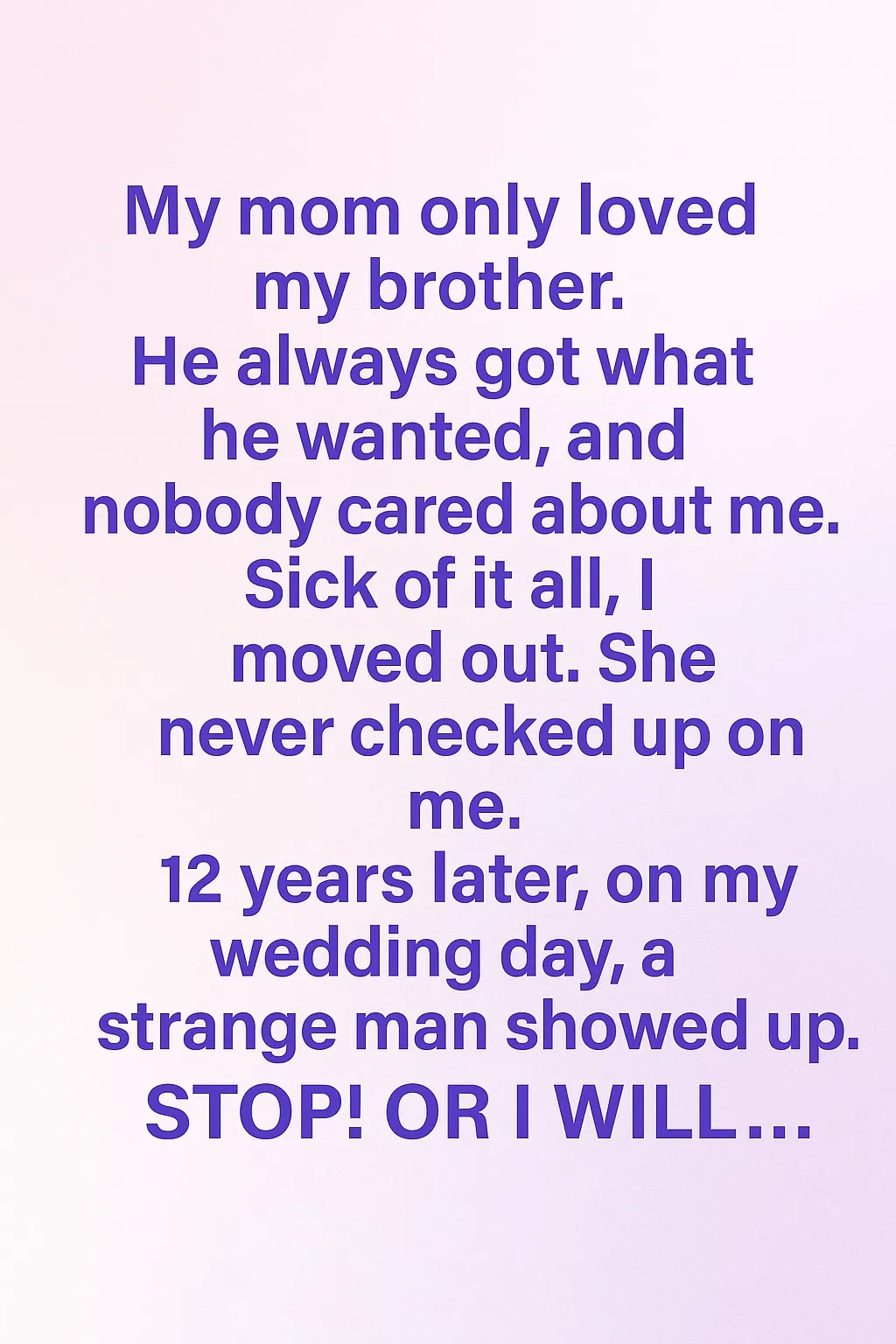Growing up, I was always the quiet one — the child who blended into the background while my brother basked in attention. He was celebrated for every small achievement, while I was left chasing scraps of affection that never came. I told myself to try harder, to be better, to finally earn the love that seemed to come so easily to others. But love that has to be earned is never really love at all.
When I turned eighteen, I made a choice that changed everything. I packed my things in silence and left. No confrontation, no goodbye — just the sound of a door closing softly behind me. Days turned into weeks, and then years. My phone never rang. No one came looking. The emptiness hurt at first, but eventually, it became fuel. I built a life that was mine — a steady job, a calm home, a sense of peace I’d never known before.
By the time I met the person who would become my spouse, I had learned how to give love freely without losing myself. When it came time to plan our wedding, I realized something deeply personal: I didn’t want to feel invisible on the happiest day of my life. So I didn’t invite my mother. It wasn’t revenge. It was self-protection — a quiet act of honoring the boundaries I had fought to build.
On the morning of the ceremony, as guests filled the garden and laughter echoed, a man I didn’t recognize approached me. He introduced himself as my mother’s neighbor. “She talks about you often,” he said gently. “Not with anger, but with regret.” Then he handed me a small envelope. Inside was a card with a few uneven lines written in her familiar handwriting:
“I’m proud of you. Always.”
For a long moment, I couldn’t speak. I didn’t feel anger or bitterness — just a deep, quiet peace. I had spent so many years trying to prove my worth, only to realize I had already done it by surviving, by growing, by learning to love myself the way she never could.
That night, after the wedding, I told my spouse I wanted to visit her someday. Not to relive the past, but to acknowledge how far I had come from it. Because healing doesn’t always look like reconciliation. Sometimes, it looks like walking away — and still wishing someone well from a distance.
In the end, leaving taught me what staying never did: that love isn’t about being chosen. It’s about choosing yourself when no one else will.
